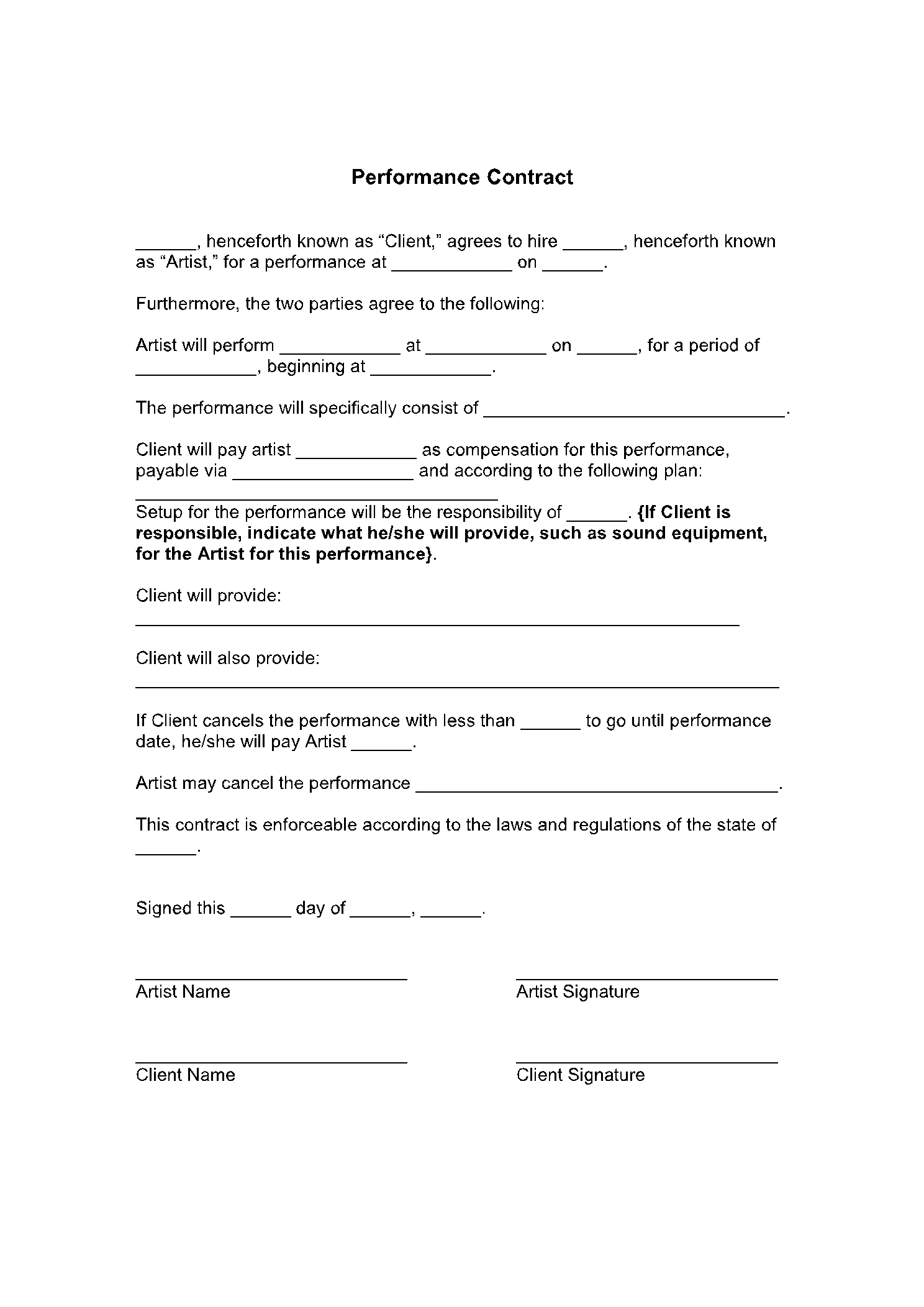Are you an entertainer, actor, comedian or performer looking to strike a deal with a client? Or are you a client looking for such services? There’s no better way to nip disagreements and misunderstandings in the bud than signing a performance contract beforehand.
A performance contract highlights in clear language what needs to be done by the performer and the employer, as well as discusses matters such as performance scheduling, pay terms, etc. This write-up tells you everything you need to know about a performance contract.
What is a performance contract?
To put things in perspective, a performance contract is a legally enforceable document between the performer and the client looking for the performer’s services. It outlines all the terms and conditions to be fulfilled by both parties as with all types of service contracts.
What are included in a performance contract?
Performance contracts are not necessarily complicated. They are mainly designed to clarify the most important terms and conditions surrounding the performance or event and provide protection to both the performer and the client.
There are two types of performance contracts namely short and long versions. Both versions contain specifics like
- Budget
- Expenses
- Advertising
- Sound and lighting
- An obligation to prohibit recording
- A list of unpredictable circumstances that might pose as a stumbling block to the fulfilment of the contract (Force majeure)
The short version of a performer contract includes only essential information, best suited for informal events like a birthday party or an acoustic performance by a guitarist in a small hall.
Long performance contracts, on the other hand, contain a great deal of information. They are also easier to enforce.
Why is a performance contract necessary?
There are only a few jobs that can be as entertaining as that of an entertainer/performer’s. The blaring speakers, resounding laughters echoing across the room, colourful atmosphere and crescendo music all culminating in an electric performance…... the audience will remember in years to come.
However, what happens when after such thrilling performance the client refuses to pay you or makes only a partial payment?
Performance contracts or entertainment contracts are designed to avoid such misunderstandings. As earlier highlighted, they note in clear language what must be done by both parties.
When is a performance contract needed?
A performance contract is the ideal documented agreement to use whenever an entertainer agrees to perform at an event with the client. These events include concerts, weddings, corporate events and family reunions.
This type of document is used to help a performer or entertainer familiarize himself or herself with what is expected of him or her. An entertainer might also create one to show the client what he/she wants to perform at the event. This helps the event planners better organize the event.
Conclusion
For your contract to be legally binding, all clauses in the contract must be clearly written in accordance with the format of standard performance contracts.
If you are unsure about how to go about creating one, you can use the free contract template available on Cocosign website. The platform contains different performance contract samples tailored for different event types.
